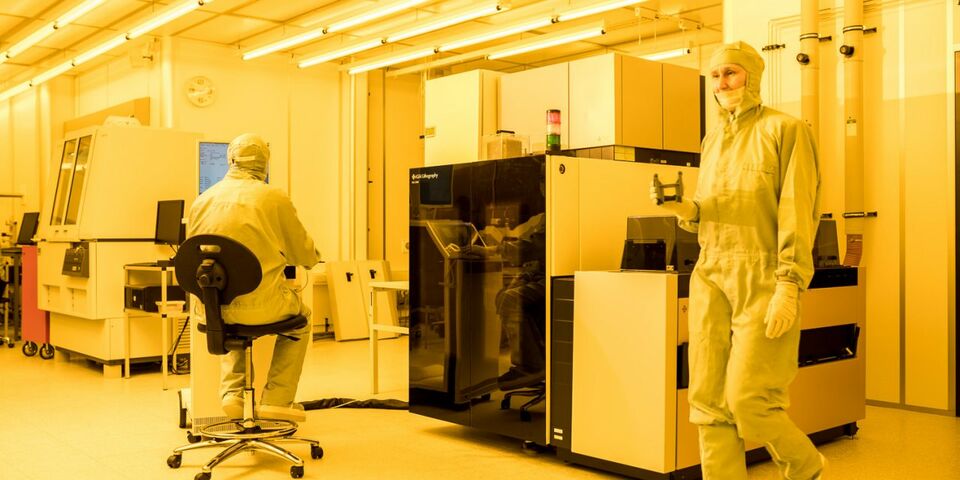SMART Photonics is a manufacturer of photonic chips, a new type of computer chips that uses light instead of electricity to transport information in a highly energy-efficient way. The company needs the extra money to expand the factory in Eindhoven to a scale that allows for cheaper and large-scale production of photonic chips. The company had already attracted interest from foreign investors.
According to minister Mona Keijzer of the Dutch ministry of Economic Affairs, SMART Photonics plays a crucial role in the Eindhoven photonics ecosystem, providing local startups in the region with crucial photonic compoments. "It is realistic to assume that without the SMART Photonics production facility in the Netherlands, today's research and development projects in the field of integrated photonics will disappear from North-Brabant and even the Netherlands, and that the Netherlands will suffer significant loss of knowledge as well as economic damage as a result”, writes Keijzer in a letter to the Dutch Parliament.
The investment of 20 million euros is part of a total funding of 35 million euro made available by a Dutch consortium, which, alongside the Dutch state, includes Innovation Industries, an independent hight tech investment fund, the Brabant Development Agency (BOM), PhotonDelta and KPN Ventures.
Scaling up
CEO Johan Feenstra of SMART Photonics is very excited about the extra funding. “Thanks to this investment we are able to bring our foundry to the next level. This will allow us to scale up our volumes as we support our customers in bringing their first commercial products using photonic integration technology to the market”.
SMART Photonics was founded in 2012 by TU/e and is based on decades of groundbreaking research into photonics at our university. It is so-called ‘pure-play foundry’, which produces indium phosphide-based photonic components for customers based on their own designs. In the micro-electronics world this is a common model but in photonics this Eindhoven company was the first of its kind. The company employs some 70 people, and is partly owned by TU/e. It works closely together with researchers of our university to further develop photonic chip technology.


Discussion